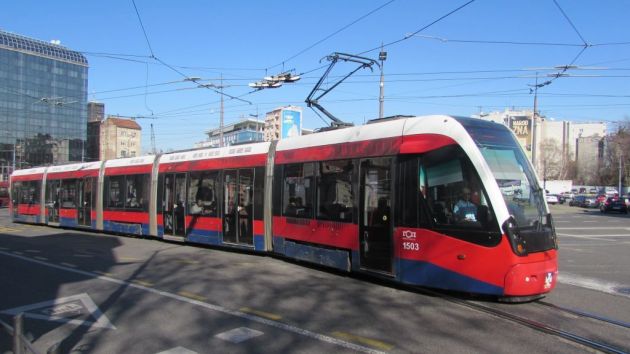Fiscal Council: Record budget deficit due to unresolved problems from the past period
 Tuesday, 10.11.2020.
Tuesday, 10.11.2020.
 15:15
15:15

– A big problem with the proposed rebalance is the pronounced lack of transparency of public expenditures, additionally increased compared to the previous budgets – the Fiscal Council said in an analysis of the proposition of the budget rebalance, which is to start being discussed at the National Assembly of Serbia today.
The rebalance envisages a state budget deficit of RSD 483 billion (8.8% of the GDP), whereas, on the level of the general state, a deficit of RSD 492 billion (8.9% of the GDP) is planned.
– This is by far the largest fiscal deficit of Serbia since the time the data started being published and is around 40% larger than the biggest deficits so far, those from 2012 and 2014. Furthermore, comparative analysis shows that Serbia's deficit in 2020 will be among the largest in Southeast Europe (where it will be 7.5% of the GDP on average) – says the analysis of the Fiscal Council.
They add that such an increase of the budget deficit cannot be explained only by the influence of the GDP drop on the public income and direct costs of anti-crisis measures.
– A good part of the 2020 deficit is in fact down to the fact that the health crisis has uncovered the problems that have been swept under the rug for years now. Years of insufficient investments in healthcare have led to the fact that, in the current crisis, Serbia has had to set aside much bigger budget funds compared to comparable countries for the procurement of the necessary equipment and improvement of the healthcare infrastructure – the Fiscal Council points out.
The analysis of this independent body also says that the problems of state-owned and public companies (Air Serbia, EPS) are not new and that “the crisis has in fact merely acted as the trigger for the state intervention whereby a part of the costs of their unsuccessful operations were covered – which would probably have happened at some point even without the crisis”.
– In addition to all that, the year will end with unsustainably large expenditures for the salaries of employees in the public sector, because they were excessively increased (by around 10%) in 2020, and the GDP will most probably have a real drop of around 1.5% – the Fiscal Council says.
MALI: Budget deficit a consequence of fighting the pandemic
The construction and the equipping of Covid hospitals, the general reconstruction of hospitals and health centers and the aid to health workers are the main reasons why this year's budget deficit is 8.75% instead of the planned 0.5%, Serbian Finance Minister Sinisa Mali said yesterday.
At the session of the National Assembly Board for Financing, State Budget and Public Funds Spending Control, he said that, although the deficit might seem large, it was lower than in many developed countries. He cited the UK deficit of 16.5%, and mentioned France, Spain and Italy as well, where, he claims, the deficit is larger than 10%.
– Others also have a huge public debt growth compared to the GDP, going up to 157% in Italy. The USA has exceeded 100%, whereas we're still within 60%.
– The projection for 2021 is that we have a deficit of 3%, while being below 60% of the public debt – Mali said.
He defended this year's investments, because they went into public investments, roads, hospitals and similar projects, and announced that the 2021 budget would feature bigger public investments.
He pointed out that the state had adopted the first budget rebalance in April. Directly or indirectly, around EUR 5.8 billion was invested in helping the economy, which is slightly over 12% of the GDP.
He said that the projection was that the GDP growth would amount to minus 1%, which, according to him, is the best result in Europe.
Mali stated that this year's budget rebalance envisaged an income of RSD 1,291 billion and expenditures of RSD 1,774 billion and that the deficit would consequently amount to RSD 483 billion, or 8.75%.
He also said that, from January 1, pensions would be higher by 5.9% and that, with the inflation at 1.5-2%, the real pension increase would be 4%.
– The aim is for salaries to grow each year, which we are achieving. In January next year, there will be a salary increase in the public sector and it remains to be seen by how much – Mali said.
According to him, the current rebalance is a transitory step toward next year's budget, when big challenges are also expected, because coronavirus is still there and will continue influencing the Serbian economy and the global economy.
He reminded that, in 2020, over 65% of direct foreign investments in the Western Balkans had been made in Serbia and that the amount in the first nine months was EUR 1.9 billion.
Mali said that the budget rebalance featured RSD 2.8 billion for the equipping of two Covid hospitals and RSD 6.1 billion for the construction of hospitals in Belgrade and Krusevac and that the one in Belgrade would have 1,000 new beds, whereas the one in Krusevac would have 500.
Most Important News
06.04.2024. | Agriculture
Preconditions for Placement of Fresh Blueberries and Dried Plums in Chinese Market Secured

16.04.2024. | News
Jovan Ciric, Leasing Director Retail MPC Properties – MPC Echo symbolizes our desire for good ideas and innovative endeavors to spread freely and bring about positive changes

16.04.2024. | News
10.04.2024. | Finance, IT, Telecommunications, Tourism, Sports, Culture
Creative Industry – What This Serbian Economy Sector Worth EUR 2 Billion Encompasses

10.04.2024. | Finance, IT, Telecommunications, Tourism, Sports, Culture
18.04.2024. | Industry, Finance
Here come the new hunters for Serbian gold – Australian Strickland Metals buys mining project on mountain Rogozna

18.04.2024. | Industry, Finance
16.04.2024. | News
Economy Fair in Mostar opens – 26 companies from Serbia exhibiting

16.04.2024. | News
18.04.2024. | Transport
Jovanovic: Purchase of Siemens trams produced in Kragujevac for GSP Beograd should be considered

18.04.2024. | Transport


 Izdanje Srbija
Izdanje Srbija Serbische Ausgabe
Serbische Ausgabe Izdanje BiH
Izdanje BiH Izdanje Crna Gora
Izdanje Crna Gora


 News
News








